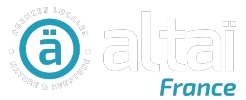Tour du Mont Blanc in mountain huts
A legendary alpine adventure around Mont Blanc- winding trails through lush valleys and dramatic glacial panoramas framed by the highest peaks in the Alps, the Tour du Mont Blanc is truly a trek like no other.
Itinerary
-
Day 1 Les Houches - Les Contamines-Montjoie
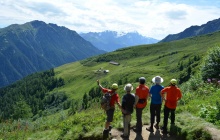 We meet bright and early at 8:45 AM in front of the Chamonix-Mont-Blanc train station. After a short transfer by bus, we ride the Bellevue cable car from the village of Les Houches—right at the gateway to the Chamonix Valley. From the top, a sweeping panorama unfolds: Mont Blanc, the Aiguilles Rouges, the Fiz range, and the Aravis mountains.
We meet bright and early at 8:45 AM in front of the Chamonix-Mont-Blanc train station. After a short transfer by bus, we ride the Bellevue cable car from the village of Les Houches—right at the gateway to the Chamonix Valley. From the top, a sweeping panorama unfolds: Mont Blanc, the Aiguilles Rouges, the Fiz range, and the Aravis mountains.
Our trek begins at 1,800 meters on a stunning balcony trail that leads us to the foot of the Bionnassay Glacier, with the option to cross the Col du Tricot (2,120m) if conditions allow. We descend into the alpine village of Les Contamines-Montjoie to rest for the night.Ascent: +410m (or +760m via Tricot variant) / Descent: -1000m (or -1360m via Tricot) / Max Alt: 2,120m / Accommodation: Mountain lodge (gîte)
-
Day 2 Les Contamines - Col du Bonhomme - Vallée des Glaciers
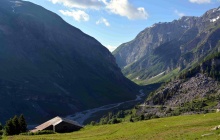 We start the day at Notre Dame de la Gorge, a gem of baroque alpine charm. A long but rewarding ascent brings us to the historic Col du Bonhomme (2,329m), a pass once trodden by shepherds, soldiers, pilgrims, and traders. At the summit, we’re greeted with panoramic views of the Beaufortain region.
We start the day at Notre Dame de la Gorge, a gem of baroque alpine charm. A long but rewarding ascent brings us to the historic Col du Bonhomme (2,329m), a pass once trodden by shepherds, soldiers, pilgrims, and traders. At the summit, we’re greeted with panoramic views of the Beaufortain region.
We continue along the Gittes ridgeline and descend into high pastures dotted with Tarine and Abondance cows—the proud producers of the region’s famous cheeses, including the delicious Beaufort you’re likely to sample during the week.Ascent: +1,550m / Descent: -900m / Max Alt: 2,665m / Accommodation: Mountain refuge
-
Day 3 Vallée des Glaciers - Col de la Seigne - Val Veny (Italy)
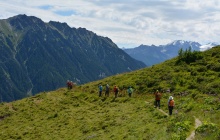 Today, we cross our first international border at the iconic Col de la Seigne (2,516m), a pass used since antiquity and marking the watershed between the Mediterranean and Adriatic seas. From here, the Italian side of Mont Blanc reveals its spectacular snow-covered peaks.
Today, we cross our first international border at the iconic Col de la Seigne (2,516m), a pass used since antiquity and marking the watershed between the Mediterranean and Adriatic seas. From here, the Italian side of Mont Blanc reveals its spectacular snow-covered peaks.
We descend into the scenic Val Veny and spend the night in a refuge nestled at the foot of the Brenva Glacier, beneath the dramatic spire of the Aiguille Noire de Peuterey.Ascent: +1000m / Descent: -1150m / Max Alt: 2,516m / Accommodation: Refuge
-
Day 4 Val Veny - Courmayeur - Val Ferret
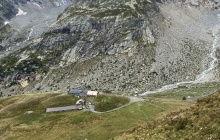 This morning, we descend into Courmayeur—perhaps with time for a well-earned gelato—before beginning our next stretch into the Italian Val Ferret. Towering above us are the majestic Grandes Jorasses, part of the mighty Mont Blanc massif.
This morning, we descend into Courmayeur—perhaps with time for a well-earned gelato—before beginning our next stretch into the Italian Val Ferret. Towering above us are the majestic Grandes Jorasses, part of the mighty Mont Blanc massif.
We hike toward either the Walter Bonatti Refuge (2,025m) or the Elena Refuge (2,061m) for our final Italian overnight. Vehicles don’t reach the refuge, allowing us to soak in the pristine alpine wilderness. This leg of the journey also offers a window into the proud heritage of legendary alpine guides.
(Refuge choice subject to availability—confirmed at time of booking.)Ascent: +1,415m / Descent: -587m 6 Max Alt: 2,025m / Accommodation: Refuge / Alternative route: +900m / -740m / Max Altitude: 2,537m
-
Day 5 Grand Col Ferret - La Peule - Champex (Switzerland)
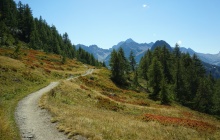 We make our way up the upper reaches of the Italian Val Ferret to the Grand Col Ferret (2,537m), the border between Italy and Switzerland. On the way, we pass beneath the Pré de Bar Glacier and Mont Dolent—the meeting point of France, Switzerland, and Italy.
We make our way up the upper reaches of the Italian Val Ferret to the Grand Col Ferret (2,537m), the border between Italy and Switzerland. On the way, we pass beneath the Pré de Bar Glacier and Mont Dolent—the meeting point of France, Switzerland, and Italy.
After crossing the col, we descend into the Swiss pastures of La Peule, where a stop to sample local dairy products is well worth it. From the village of Ferret, we transfer by local bus through Orsières to reach the picturesque lakeside village of ChampexAscent: +900m / Descent: -940m / Max Alt: 2,537m / Accommodation: Refuge /Alternative route: +850m / -900m / Max Alt: 2,005m
-
Day 6 Champex - Trient - Bovine - Argentière
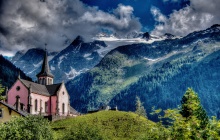 We depart Champex and head into the high meadows of Bovine, home to the proud black Hérens cows, symbols of the Valais region. This scenic balcony trail offers sweeping views of the Rhône Valley and the distant Grand Combin massif.
We depart Champex and head into the high meadows of Bovine, home to the proud black Hérens cows, symbols of the Valais region. This scenic balcony trail offers sweeping views of the Rhône Valley and the distant Grand Combin massif.
We descend through a peaceful forest to the Col de la Forclaz, then follow the historic Bisses trail—an ancient water channel route—down to the village of Trient. A private transfer brings us back to France via the Col des Montets, ending the day in Argentière.Ascent: +850m / Descent: -900m / Max Alt: 2,005m / Accommodation: Gîte or refuge / Alternative route: +1,100m / -1,190m / Max Alt: 2,201m
-
Day 7 Argentière - Lac Blanc - Chamonix
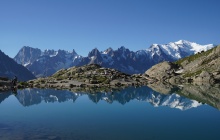 Our final day brings one of the most iconic views of the entire trek. We hike into the Aiguilles Rouges Nature Reserve, directly opposite Mont Blanc, and climb to the shimmering Lac de Chéserys and the stunning Lac Blanc (2,352m)—a jewel of the high Alps reflecting the peaks above.
Our final day brings one of the most iconic views of the entire trek. We hike into the Aiguilles Rouges Nature Reserve, directly opposite Mont Blanc, and climb to the shimmering Lac de Chéserys and the stunning Lac Blanc (2,352m)—a jewel of the high Alps reflecting the peaks above.
We descend along a balcony trail via La Flégère and Le Brévent before making our way back to Chamonix, where our unforgettable adventure comes to a close.Ascent: +1,150m / Descent: -1,400m / Max Alt: 2,355m
Important
Dates & prices
Departures for French-speaking groups:
| From | To | Price per person | Guaranteed | Booking |
|---|---|---|---|---|
| €1,119 | No | Book now! | ||
| €1,119 | No | Book now! | ||
| €1,119 | Yes | Book now! | ||
| €1,119 | Yes | Book now! | ||
| €1,120 | Yes | Book now! | ||
| €1,119 | Yes | Book now! | ||
| €1,119 | No | Book now! | ||
| €1,119 | No | Book now! | ||
| €1,119 | No | Book now! | ||
| €1,119 | No | Book now! | ||
| €1,119 | No | Book now! | ||
| €1,119 | Yes | Book now! | ||
| €1,119 | No | Book now! |
Trip code: FTOU
Included
Not included
Payable On Site
- Drinks
- Personal expenses
International flights
Flights & Transfers
Terms and conditions
Booking conditions
Invoice procedure
Cancellation policy
Cancellation by You
If, for any reason, you need to cancel your trip, the amounts you have paid will be refunded, subject to the following deductions:
You must notify us of your decision to cancel in writing, using any method that provides acknowledgment of receipt. The cancellation date will be determined based on the date we receive your written notice.
In case of cancellation, for any reason, the following cancellation fees will apply:
- More than 31 days before departure: 30% of the total trip cost (excluding insurance)
- 30 to 21 days before departure: 40% of the total trip cost (excluding insurance)
- 20 to 14 days before departure: 50% of the total trip cost (excluding insurance)
- 13 to 7 days before departure: 75% of the total trip cost (excluding insurance)
- Less than 7 days before departure: 100% of the total trip cost (excluding insurance)
Special Cases
Regardless of the cancellation or contract modification date, the following fees are added to the above scale:
- Non-refundable fixed ground fees: Any firm bookings made early (such as certain mountain huts) will be charged in case of cancellation.
- Insurance and registration fees: Whatever the insurance policy chosen, the cost of insurance and registration fees are non-refundable.
Cancellation by Us
Altaï France may cancel a trip free of charge in the following cases:
- If the minimum number of participants required to run the trip is not met.
- In case of exceptional and unavoidable circumstances, especially related to mountain conditions and customer safety.
In such cases, Altaï France will propose alternative solutions. If no suitable alternative is available, any unused services will be refunded. No additional compensation can be claimed.
You will be informed of any cancellation as soon as possible, and no later than:
- 30 days before departure for self-guided or exclusive trips
- 20 days before departure for trips longer than 6 days requiring a minimum number of participants
- 7 days before departure for trips lasting 2 to 6 days
- 48 hours before departure for trips shorter than 2 days
If Altaï France is forced to cancel all or part of the trip due to circumstances that compromise customer safety (e.g., poor mountain weather), the unused services will be refunded. No additional compensation will be provided.
For safety reasons and to ensure a consistent group level as described, the guide and organizers reserve the right to terminate your participation if your technical level or physical condition does not meet the requirements. In such a case, no refund or compensation will be provided.
Changes to travel contract
Pricing
Contract transfer
Insurance
Practical info
Staff
Expert Guiding
Food
Food & Meals
· Lunches are hearty picnics prepared by your guide the evening before, often featuring
fresh salads, charcuterie, cheese, and fruit. Don’t be surprised if your guide
slips away for an hour or two after dinner—they're busy preparing delicious
food for your next day on the trail!
· Dinners are served at the accommodation each evening.
· We
recommend bringing your favourite snacks (energy bars, nuts, chocolate, dried
fruit) and perhaps a regional treat from home to share during a trailside
aperitif!
Drinks
Accommodation
Accommodation
Transportation
Luggage
Meeting Point
· By
Car: Direct access via the Autoroute Blanche, connected to the
European motorway network.
Budget & exchange
Tips
Supplied equipment
Vital equipment
We recommend dressing using the three layer rule for maximum comfort and safety:
· A
breathable base layer (short- or long-sleeve)
· A
warm fleece or insulating mid-layer
· A
windproof, waterproof shell (e.g., Gore-Tex)
Quick-drying fabrics are best—avoid cotton. Wool, silk, and synthetic fibres
are ideal for staying warm and dry. Sweat-soaked clothing is your enemy during
cold rest breaks!
Material
Technical material
· Well-worn
trekking boots with ankle support and Vibram soles (never new!)
· Telescopic
trekking poles
· Sleeping
bag liner
· Compact
toiletry kit + quick-dry towel
· High
SPF sunscreen and lip balm
· Headlamp
+ spare batteries/bulb
· 1.5L
water bottle or CamelBak
· Pocketknife
· Toilet
paper + lighter
· 2–3
plastic bags (100L) to waterproof your gear
· Reusable
lunch container + cutlery
Personal equipment
· Warm
hat and gloves (fleece or wool)
· Sun
hat, cap, or scarf
· High-quality
sunglasses (Category 3)
· Breathable
technical underwear
· Breathable
base layers (long- and short-sleeve)
· Fleece
jacket
· Down
or insulated jacket
· Waterproof/windproof
outer jacket (Gore-Tex style)
· Technical
leggings
· Comfortable
hiking trousers
· Shorts
or cropped pants
· Waterproof
trousers
· Hiking
socks (thin + thick, no cotton)
· Sleepwear
Luggage
Guide’s Tip:
· Warm
clothes (fleece, gloves, hat)
· Rain
gear
· Water
bottle
· Camera*
· Sunscreen
· Your
daily picnic
Main Luggage (transported):
· Laptops
or electronics
· Cameras
· Valuables
Medicine
· Personal
prescriptions
· Painkillers
(paracetamol preferred)
· Blister
protection (Compeed, etc.)
· Bandages
and plasters
· Local
antiseptic
· Anti-inflammatory
medication
· Anti-spasmodic
· Anti-diarrhoeal
· Anti-nausea
tablets
· Intestinal
antiseptic
· Eye
drops
· Light
sleep aid
· Ear
plugs
· Broad-spectrum
antibiotics
· Vitamin
C (*This list is not exhaustive. Consult your doctor before travel.)
Passport
Please ensure your passport or national ID is valid for travel in France,
Italy, and Switzerland. No visas or vaccinations are required for EU citizens.
Visa
- Up to 90 days visit : citizens from most countries do not need a visa to visit France, Italy or Switzerland.
- Over 90 days visit : non-EU or non-EFTA citizens must have a visa to visit France, Italy or Switzerland over 90 days.
Identity card
Mandatory vaccines
Health information & recommendations
We suggest 2–3 sessions of endurance sport per week for at least 3 months
before your trip, plus weekend hikes of 6+ hours with 350m elevation gain per
hour.
Please inform us of any relevant medical conditions (e.g., allergies,
asthma, diabetes, heart issues).
Weather
Electricity
· France: Type E plugs, 230V, 50Hz
· Italy: 220–230V, round-pin plugs
· Switzerland: Type J plugs (3-pin, recessed), 230V. Most standard European 2-pin plugs work,
but an adapter may still be needed.
Local time
· Central
European Summer Time (CEST): UTC+2
Sustainable tourism
Help us preserve the beauty of the mountains:
· Carpool
or use public transport where possible
· Leave
no trace: carry your waste if no bin is available, and recycle when
possible
· Smokers:
please do not throw cigarette butts in nature
· Respect
wildlife: stay quiet and on marked trails to avoid disturbing animals
The mountains are a gift—let’s protect them together.

